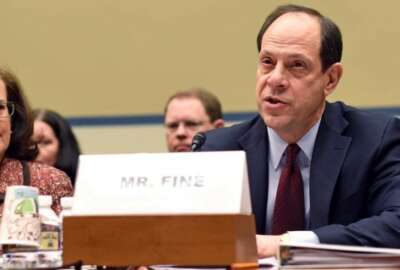
Acting, schmacting — this guy changed things
Senate confirmation isn't a requisite for making a difference
Here’s what I consider the most dismal title modifier in federal life: Acting. A whole cultural set of unwritten rules about what an “acting” official can and cannot do has flourished over the years.
Because of hard rules about how long an “acting” official can act, a follow-on construction has sprung up. Namely, “performing the duties of.” You keep your lower title, but “perform the duties” of the higher, appointed position. Sort of like an understudy when the marquee star gets a sore throat.
But acting or performing-the-duties-of officials can make a difference. A case in point is Defense Department Principal Deputy Inspector General Glenn Fine. He’s a “performing-the-duties-of.” In fact, he’s been the unconfirmed head of the DoD OIG for going onto four years.
With some 1,800 employees, the DoD OIG is bigger than some independent agencies. Its employee engagement scores were low, and Fine decided to do something about it. He acted like someone in charge. He wrote up the results, which were sufficient to merit publishing by the Columbia Law School’s Center for the Advancement of Public Integrity.
For example:
- Between 2015 and 2018, satisfaction scores rose from 43 percent to 70 percent — above the governmentwide average. Numbers refer to the percentage of people answering yes or no on a question.
- Job satisfaction rose from 58 percent to 71 percent. Interestingly, this smaller delta started from a higher base. To me this means people liked their jobs more than they liked the organization or its leadership.
- To the question whether “senior leaders generate high levels of motivation and commitment” scores rose from 25 percent to 58 percent — from below the governmentwide average to above it.
In his essay and in his interview with me, Fine says business results also rose in the same period. His list includes the “first ever financial statement audit of the DoD.” Also establishment of an alternate dispute resolution process for whistleblower retaliation. He adds that audit reports have improved thanks to an emphasis on plain English.
Perhaps more telling, dozens of people who had left the DoD OIG returned.
Fine stresses that the steps he took to raise engagement have two qualities. One, they’re just applications of basics of good management — good human relations, really. Regular feedback (not just annually), active listening, rewarding the good and holding the poor performers accountable, making sure people have the tools they need — anything you honestly haven’t heard before?
Two, to be effective, managers must apply them continuously and on purpose. People, Fine says, can see right through lack of long-term commitment and leaders who deploy good employee relations until they get bored with it.
Related Stories
I was impressed that Fine, when possible, personally swears in new OIG employees. Imagine the impact that has. When he walks around, Fine says, sometimes people are startled. But they get used to it and realize the (acting) director actually is interested in what they’re doing.
Equally impressive was what I call the parking episode. The OIG main office is in the infamous Mark Center building in Alexandria, Virginia. Basically, driving is the only way to get there. OIG employees lacked sufficient parking spaces. Fine took it up the chain of command all the way to the Defense Secretary — and eventually secured more spaces. You think employees notice a thing like that?
You can’t operate outside the rails of the federal system. But between those rails lies a lot of discretion. And no rules or statutes prevent managers and agency heads from doing what it takes to encourage engagement and job satisfaction.
An old HR maxim is that people don’t leave jobs, they leave bosses. Why are yours leaving?
Copyright © 2024 Federal News Network. All rights reserved. This website is not intended for users located within the European Economic Area.
Tom Temin is host of the Federal Drive and has been providing insight on federal technology and management issues for more than 30 years.
Follow @tteminWFED






